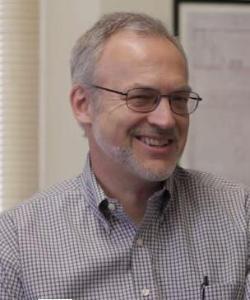February 1, 2018
Dr. Tracy McKenzie serves as professor of history and chair of the history department at Wheaton College. With the desire to discuss what it means to think Christianly about the American past, McKenzie introduced his blog, Faith and History, in 2012. The following reflection was originally published on Faith and History in January 2018.

But remembering that we live in time is also essential to thinking Christianly. We must remind ourselves daily of one of the undeniable truths of Scripture: our lives are short. The Bible underscores few truths as repeatedly—even monotonously—as this one. “Our days on earth are a shadow,” Job’s friend Bildad tells Job (Job 8:9). “My life is a breath,” Job agrees (Job 7:7). David likens our lives to a “passing shadow” (Psalm 144:4). James compares our life’s span to a “puff of smoke” (James 4:14). Isaiah is reminded of the “flower of the field” that withers and fades (Isaiah 40:7-8).
These aren’t exhortations to “eat, drink, and be merry, for tomorrow we die.” They are meant to admonish us—to spur us to wisdom, not fatalism. The psalmist makes this explicit in the 90th Psalm when he prays that God would “teach us to number our days, that we may gain a heart of wisdom” (Psalm 90:12, New King James version). To “number our days” means to remember that our days are numbered, i.e., finite. The Good News Translation is easier to follow here. It reads, “Teach us how short our life is, so that we may become wise.” Part of growing in Christian wisdom, it would seem, involves reminding ourselves that our lives are fleeting.
American culture, unfortunately, does much to obscure that truth. Compared with the rest of the world, most American Christians live in great material comfort, and for long stretches of time we are able to fool ourselves about the fragility of life. The culture as a whole facilitates our self-deception through a conspiracy of silence. We tacitly agree not to discuss death, hiding away the lingering aged and expending our energies in a quest for perpetual youth.
Madison Avenue and Hollywood perpetuates this deceit, glorifying youth and ignoring the aged except for the occasional mirage of a seventy-year-old action hero aided by Botox and stunt doubles. If you need further proof that our culture flees from the truth of Psalm 90:12, just think about Times Square on New Year’s Eve. Of all the days of the year, New Year’s Eve is the one on which Americans most pointedly acknowledge the passage of time. We do so with fireworks and champagne and confetti. Think about that for a moment.
In his wonderful little book Three Philosophies of Life, Christian philosopher Peter Kreeft sums up the message of the Preacher of Ecclesiastes in this way: Everything that we do to fill our days with meaning of our own making boils down to a desperate effort to distract our attention from the emptiness and vanity of life “under the sun.” Our pursuits of pleasure, power, property, importance—they all “come down in the end to a forgetting, a diversion, a cover-up.” Isn’t that what we see in the televised spectacles on New Year’s Eve?
For the Christian, being mindful that we live in time means not running away from the truth that our lives are short, but rather letting it wash over us until we feel the full weight of discontentment that it brings. According to Kreeft, “Our desire for eternity, our divine discontent with time, is hope’s messenger,” a reminder that we were created for more than this time-bound life, fashioned by our timeless God with an eye to a timeless eternity. Being mindful that we live in time should heighten our longing for heaven. In A Severe Mercy, Sheldon Vanauken goes so far as to identify the “timelessness to come” as one of the glories of heaven.
So here’s a resolution to consider for 2018. In addition to losing weight, organizing our finances, and working for that promotion, let’s remind ourselves regularly that we live in time. May the psalmist’s prayer be ours: “Teach us how short our life is,” Lord, “so that we may become wise.”